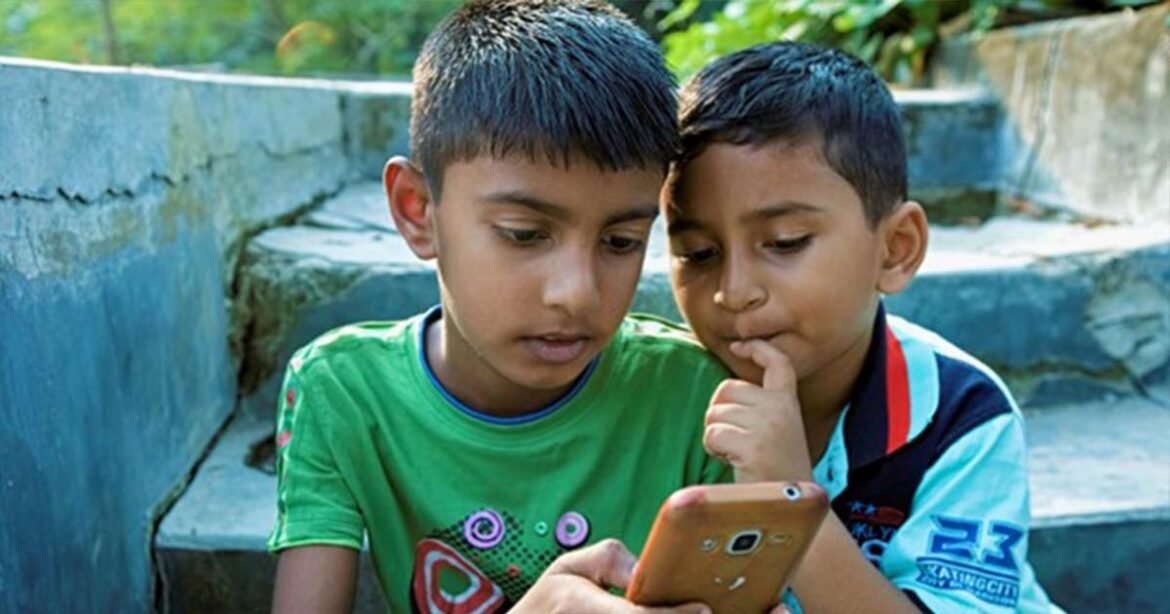In today’s world, technology has finally reached its zenith of development. Like two sides of a coin, there are benefits and disadvantages to technology. Especially, the convenience of smartphones has made us dependent on them. Children are at a heightened risk for this sort of addiction, which can cause profound mental and behavioral changes as well as a complete overhaul of one’s sense of self. For this reason, it is crucial that we find ways to reduce youth smartphone addiction.
Considering how easily and efficiently technology can manipulate adults, what effects do you think it has on children on a global scale? There is a widespread problem with children spending too much time on their cell phones. It’s hard to hold them responsible, though. True, but so do grownups. When “a little bit too much time” becomes “far too much time,” a habit forms, and eventually, an addiction develops. Mobile phone dependency is an epidemic today.
You can also read: IMF Chief warns one-third of global economy facing recession in 2023
It raises doubts about numerous commonly held beliefs. In the past, parents had diverse perspectives about the disease of addiction. Parents are worried about their children trying drugs like cocaine, heroin, or nicotine. Currently, there is a new way of thinking about addiction.
The Nomophobia
Internet addiction is a major contributor to the problem of smartphone dependency, often known as “nomophobia” (the dread of being without a mobile phone). Phones and tablets are rarely interesting in and of themselves; rather, it is the content that can be accessed through them, such as games, apps, and online worlds, that draws us in.

According to primary data collected by the Bangladesh Bureau of Statistics, more than half of youngsters aged 5 to 17 have their own cell phone. Another interesting fact is that about 30.7 percent of these kids have access to the internet.
Ofcom, the communications regulator in the United Kingdom, reports that 91% of 11-year-olds in the country have access to a smartphone, up from 44% of 9-year-olds. 37% of American parents report that their 9-11-year-old child uses his or her own smartphone. Furthermore, according to Pew Research Center, about half, or 54%, of young people say they use their phones too much whereas Over seventy-two percent of teens immediately check their phones for new messages and alerts upon waking.
Reasons for Smartphone addiction
Before we address the impact and the possible solutions to this growing problem, it is crucial to understand the reasons of this. Addiction to mobile devices can stem from a wide variety of causes. The increasing use of cell phones by teenagers and kids is having a detrimental effect on their mental development. The following factors contribute to the emergence of cell phone dependency:
- Young ones pick up skills by emulating what they see. Your youngster will pick up the habit of constantly checking their phone if they see their parents doing it. They’ll want to borrow phone and quickly pick up the basics of using it. When adolescents develop an unhealthy dependence on media like television, video games, and the internet, it should raise some red flags. This becomes routine, and if one isn’t careful, it might develop into addiction.
- Children like smartphones in the same instantaneous way that adults do. This place has everything they could possibly want. Everything a child may want is conveniently compiled in one spot, from activities to nursery rhymes to their favorite programs. They enjoy themselves, and that makes them want more of the same kind of entertainment. As a result, they get dependent on their smartphone and have trouble putting it down in favor of more soothing pursuits.
- For parents, the convenience of smartphones in providing entertainment for children is undeniable. When their kid is angry or displaying a tantrum, many parents will hand over the phone. Because of the smartphone, kids are able to relax and focus on what’s happening on the screen. If kids start using a smartphone too much, then parents may have problems with their hands. To be sure, that’s a negative pattern. Parents may not think it’s a big deal to use their smartphone as a distraction every now and then, but those little moments pile up and can lead to a serious problem.

Effects of Smartphone addiction
There are several issues that might arise for both you and your child if they develop an early addiction to smartphones.
- To begin, the bond between a parent and child might be severely damaged by an excessive reliance on smartphones. Kids are less likely to talk with their parents when they’re always on their phone. They keep to themselves and avoid the company of others. Since this causes them to become more reserved, it will also have an effect on their ability to interact with others and express themselves verbally.
- After that, they lose interest in hanging out with friends and having fun outside the house. They run the risk of being a bad communicator and unable to understand others or persuade them of their point of view.
- Children are 60% more likely to absorb radiation than adults due to their thinner brain’s skin and tissues, according to studies. The disruption of normal brain function and the subsequent emergence of behavioral issues are likely to make your child’s educational experience more challenging.
- Kids who participate regularly in online communities are disproportionately likely to be cyberbullied. The difficulty is that they often don’t admit it until after they’ve experienced permanent psychological harm. Likewise, prolonged use of social media can lead to feelings of depression and worry. According to research, without their phones, 56% of teenagers report feeling lonely, anxious, or unhappy, and those who devote excessive amount of time on smartphone increase their risk of depression by 27%. (BankMyCell, 2020).
- Teens who use their phones for 5 hours a day are 51% more likely to have insufficient sleep. A child might stay up late because of video games or social media. This may lead to feelings of restlessness and exhaustion. Kids who don’t get enough rest in the evenings and mornings have trouble paying attention in class.
Possible Solutions
To mitigate this burning problem following actions can be helpful-
- It’s puzzling how much time kids spend on their phones and other devices, but it’s simple to tell who’s just playing and who’s using them to pass the time or avoid responsibility. Recognizing the signs of youth smartphone addiction is the first step in overcoming the problem. Not recognizing the problem and coming up with solutions could be counterproductive.
- Creating regulations without expressing their justification is ineffective. Parents should talk to their kids in terms they can grasp about the potential dangers of excessive screen time before establishing any limits at home.
- Establishing routines has been shown to be effective in getting children to comply with regulations and in easing some of the pressures of parenting. Children under the age of 18 months should not be exposed to screens. Under parental supervision, children between the ages of 18 and 24 months can watch short segments of high-quality children’s programming. No more than an hour of daily screen usage is appropriate for children aged 2–5. When it comes to children older than six, parents have more flexibility in setting limits while still promoting healthy lifestyle practices like getting enough rest and participating in other activities.
- Children have less access to outdoor play areas. As a result, individuals develop an unhealthy obsession with technology. Parents should take their kids to the park or a playground to avoid this. Kids can get more exercise and play time by minimizing smartphone use. A fantastic method to make sure the kids are having fun and learning something from the physical games is to join with them.
- If parents can’t pull their attention away from the phone, none of the advice above will help. An important way that kids learn is by watching and imitating their parents. Parents should avoid constantly talking on the phone in front of their children. They should put their phone on silent or put it somewhere else entirely when they are spending time with their kid. This will also allow them to bond with their kid and enjoy more quality time together.
Every possible thing comes with both advantages and disadvantages. Technological advancements like smartphones have made our life easier and faster. Now, there is nothing that cannot be done with a smartphone. At the same time, it has caged the children and teens with its might. With the rising addiction, it has pulled the generation away from parents, relatives and community. If not controlled soon, it will have fatal consequences in the upcoming generation.


